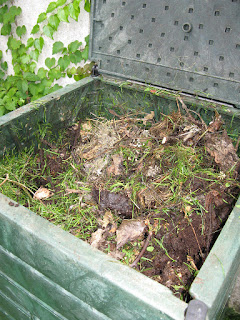Composting is becoming popular over the years because of its positive impact on the ecosystem and environment. It supports recycling and is sustainable in nature. Every type of wet garbage can be converted into useful manure by using composting. Also, it is easier to make compost multiple times with the help of a composting machine because the process is completely odorless and noiseless. Composting has several positive effects on the environment.
Here is a list of few things which benefit the environment at large :
Reduce the need for chemical fertilizers
When compost is mixed in the soil, it makes the land perfect for effective crop growth. Such fertile land enables the crops to easily absorb rich nutrients and water. This helps plants to fight against many diseases. Therefore, it reduces the need for chemical fertilizers and pesticides thereby increasing the overall yield production.
Ensures right disposal
We all know that proper waste disposal is needed to maintain the balance of our environment. Composting enables you to follow eco-friendly disposal practices of wet scraps. It also produces useful manure after decomposition of these wet scraps. This manure is environmentally safe & sustainable. It can further be used in the soil to grow healthier plants.
Grow healthier plants
A high-quality manure helps plants to absorb rich nutrients and water present beneath the surface of the soil. Composting balances the growth of healthy bacterias, insects, and worms in the soil. These healthy bacterias further enhance crop growth. The use of manure also helps in controlling the growth of weeds. As a result, the overall efficiency of soil & crops rises. This generates more output and thereby increases revenue.
Improve soil properties
Composting improves the quality of the soil. Compost adds essential nutrients like phosphorus, potassium, nitrogen in the soil. This increases soil fertility, keeps it moisten, and suitable for harvesting. The essential nutrients present in the soil helps plants to fight against many diseases. Therefore, crops grown in such land yields maximum productivity. Also, these crops are fresh, nutritious, and healthy to eat.
Saves
water
Composting improves the water holding capacity of the land. When plants are grown in fertile land, their roots hold the water in the soil tightly. It saves rainwater from running off. This creates fresh groundwater sources beneath the surface of the land. As a result, freshwater is available throughout the year and it rises overall productivity.
Reduce
greenhouse gas emissions
Compost is a useful solution for the disposal of wet materials. When food scraps are dumped into the landmasses, it emits dangerous greenhouse gases. On the other hand, when these food scraps are composted, it decomposes in the right way and does not release toxic methane gas in the atmosphere.
Completes the ecological loop
The process of composting does not use any artificial chemicals to decompose the organic waste matter. It decomposes every type of wet trash and generates eco-friendly manure. Therefore it is said that composting completes the eco-logical loop i.e. returns what’s taken from the environment. Also, it does not emit any harmful gases in the environment while the process is being carried out.
Conclusion
:
It is always seen that composting has vast benefits on our ecosystem and environment. Composting will help us to achieve sustainable development over a period of time. It can also prove as a good replacement for chemical fertilizers and pesticides. Thereby it will help us to preserve rare energy sources. Subsequently, we might achieve the goal of creating zero garbage cities in the future.
Every one of us should start composting and take responsibility for nature conservation. You can start composting at home or can also install organic waste converter machine or organic waste composter machine-like Goldust on premises of residential areas. This machine is compact in size, therefore, it consumes less space. It has unique safety features like overload protection, indications of each stage of operation, etc.
Interested
to know more, kindly visit the website of LAHS Eco Engineering
























